Algeria Biodiversity: Animal and Plant Species and What is Under Threat
Algeria is a country with a rich and diverse natural heritage, boasting a vast array of flora and fauna that are unique to the region. From the rugged mountains of the Atlas to the expansive Sahara desert, Algeria’s ecosystems provide a home to a variety of species that have adapted to survive in these extreme environments.
Algeria’s flora is equally impressive, with over 4000 known plant species, including endemic species found nowhere else on earth. The country’s diverse range of ecosystems – including forests, wetlands, grasslands, and deserts – contribute to its richness in biodiversity. Unfortunately, many of these species and ecosystems are now under threat due to human activities and climate change.
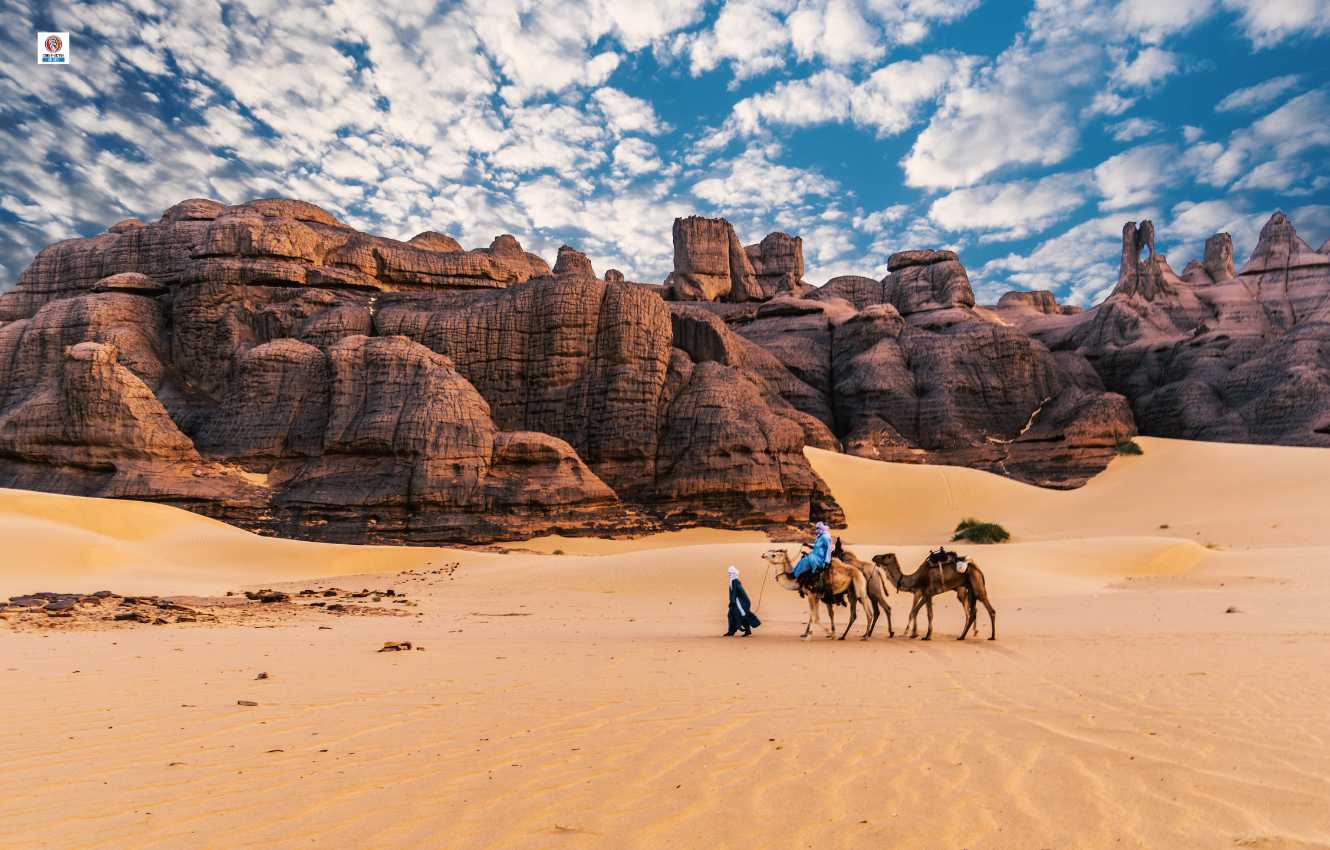
Key Takeaways:
- Algeria is home to a rich and diverse natural heritage, with unique animal and plant species found in its various ecosystems.
- The country’s ecosystems, consisting of forests, wetlands, grasslands, and deserts, contribute to its rich biodiversity.
- Unfortunately, human activities and climate change now threaten many of Algeria’s species and ecosystems.
Exploring Algeria’s Flora and Fauna
Algeria is home to a rich variety of wildlife, showcasing the country’s vast natural diversity. From the Atlas Mountains to the Sahara Desert, Algeria’s landscape provides habitats for a myriad of species.
The country boasts a range of endemic species, found nowhere else in the world, such as the Saharan cheetah and Barbary macaque. Unfortunately, many of these species are classified as endangered due to habitat destruction, poaching, and climate change.
The Barbary macaque, for example, is one such species that is under threat, with only a few thousand left in the wild. These primates, known for their distinctive face and striking red fur, are found in the Atlas Mountains and have long been hunted for their meat, fur, and as pets.
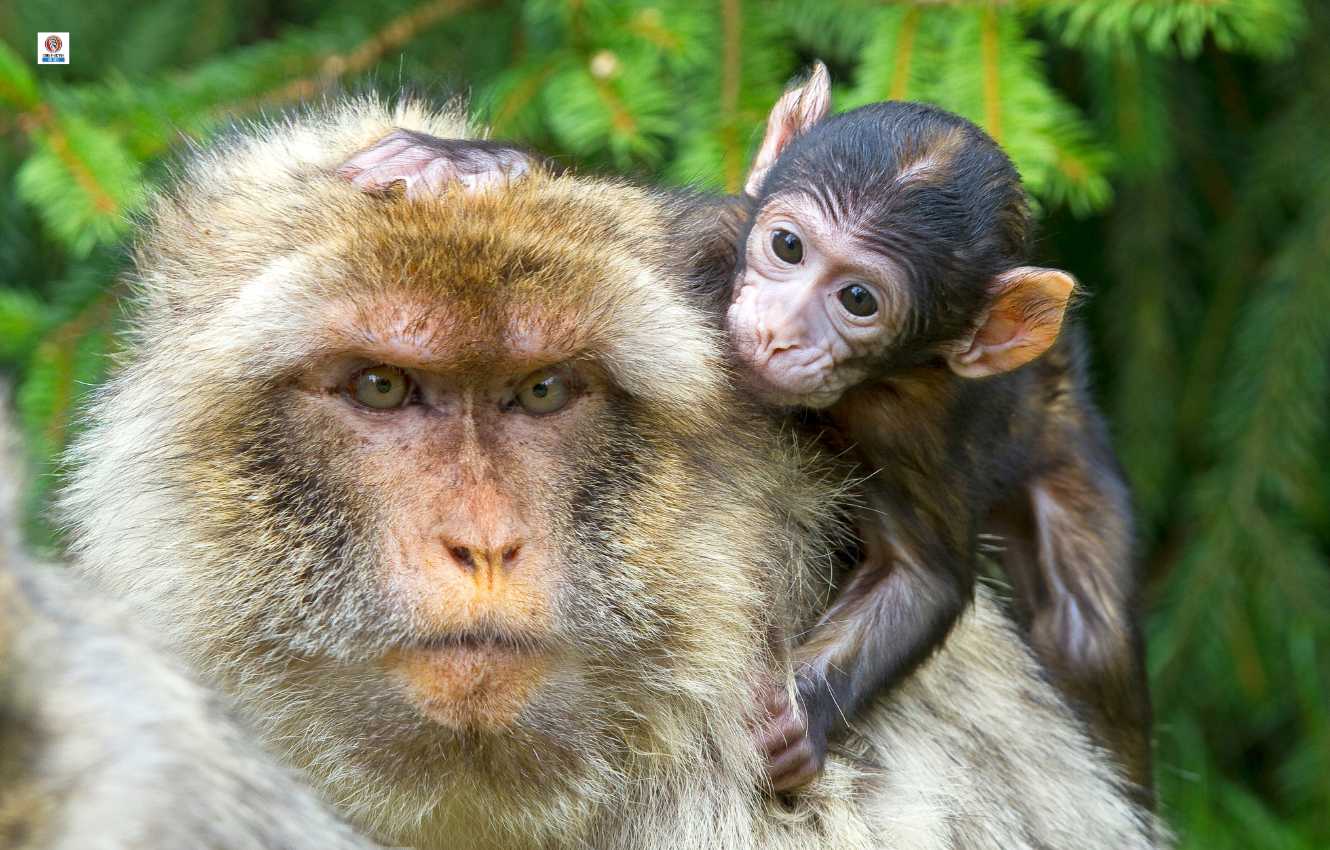
Another endangered species found in Algeria is the Mediterranean monk seal, with only a few dozen remaining in the country’s coastal waters. This species has been threatened by human activity, such as overfishing and coastal development, causing a decline in their food sources and habitat.
Other notable wildlife found in Algeria include the African elephant, jackal, hyena, gazelle, and a variety of bird species. Algeria’s wetlands, including the Chott el Hodna and the Tassili n’Ajjer National Park, provide crucial habitats for migratory birds, including the greater flamingo and the European spoonbill.

Efforts are being made to protect Algeria’s unique wildlife, with initiatives such as the creation of protected areas and anti-poaching patrols. However, more needs to be done to address the threats facing these species and ensure their survival for future generations.
Exploring Algeria’s Flora
Algeria’s diverse ecosystems also support a wide range of plant species, with over 4,000 species recorded in the country.
One of the most notable plants found in Algeria is the date palm, which has been cultivated in the country for thousands of years and plays an important role in the local economy. Other plants, such as the desert rose and the giant fennel, are also found in Algeria’s arid regions.
The country is also home to a variety of medicinal plants, including the spiny chicory, which is used to treat liver and stomach diseases, and the Barbary fig, which is known for its anti-inflammatory properties.
Despite the rich flora and fauna found in Algeria, much of it is under threat from climate change, habitat destruction, and overgrazing. It is crucial that we take action to protect these vital ecosystems and the species that call them home.
Algerian Ecosystems: A Haven for Biodiversity
Algeria is home to a vast array of ecosystems, each offering a unique habitat for a diverse range of plant and animal species. From the towering Atlas Mountains to the vast Sahara Desert, Algeria’s varied landscape makes it a biodiversity hotspot in North Africa.
The Mediterranean coastline of Algeria is also an important ecosystem, with a variety of plant and animal species thriving in the coastal wetlands, dunes, and rocky shores. The country’s extensive wetlands, including the Ramsar-listed Chott Ech Chergui and Chott Merouane, provide a rich habitat for migratory birds and other aquatic species.
The Algerian Sahara is another important ecosystem, covering over 80% of the country. Despite its harsh and arid conditions, the Sahara is home to a surprising number of desert-adapted plant and animal species, such as the Saharan gazelle and the sand viper.

The mountainous regions of Algeria also support a rich biodiversity, with unique species found in the Atlas and Tell Atlas ranges. The cedar forests of Djurdjura National Park and the Tassili n’Ajjer plateau are home to a variety of endemic plant species, such as the Algerian fir and the Saharan cypress.
Overall, Algeria’s diverse ecosystems provide a haven for a wide range of plant and animal species. It is crucial to protect and conserve these ecosystems, especially those that are considered biodiversity hotspots, to ensure that future generations can continue to enjoy the natural heritage of Algeria.
Conservation Efforts in Algeria
Algeria has been taking significant steps towards the conservation of its rich and diverse flora and fauna. The government of Algeria has implemented several biodiversity conservation strategies to protect its natural heritage. The country’s commitment to preserve its biodiversity has led to the establishment of several protected areas, such as Tassili n’Ajjer National Park, which is recognised as a UNESCO World Heritage Site.
Moreover, Algeria has signed several international agreements and conventions, including the Convention on Biological Diversity, to promote the conservation of endangered species and their habitats. The government has also set up programs to monitor and control illegal hunting and trading of wildlife, which has led to the arrest of several poachers and traffickers.
| Conservation Efforts |
Organisations involved |
| Establishment of protected areas |
National Office for the Protection of the Environment |
| Management of natural resources |
Ministry of Agriculture and Rural Development |
| Monitoring of wildlife populations |
National Hunting and Wildlife Office |
Non-governmental organisations (NGOs) and local communities also play a crucial role in biodiversity conservation in Algeria. Several NGOs have partnered with the government to promote conservation efforts and provide support to local communities for sustainable resource management. The Algerian Association of Ecotourism and Conservation is one such organisation that promotes eco-tourism as a means to protect wildlife and empower local communities.
Overall, the conservation efforts in Algeria are an excellent example of how a country can protect its natural heritage while promoting sustainable development. The continued implementation of these strategies and partnerships is crucial for the long-term preservation of Algeria’s diverse and unique wildlife.
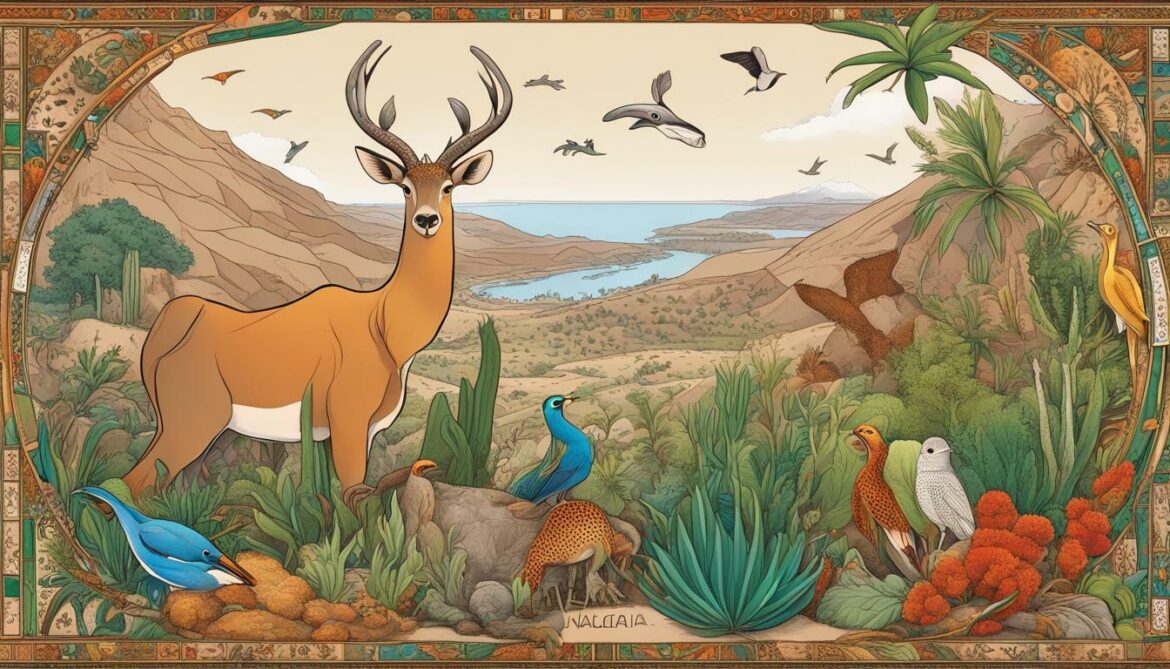
Threats to Algeria’s Biodiversity
Algeria is home to a rich and diverse natural heritage, with numerous animal and plant species that are unique to the region. However, this biodiversity is under threat due to various human-induced factors.
One of the main threats to Algeria’s biodiversity is habitat loss. The expansion of agriculture and urbanisation has led to the destruction and fragmentation of natural ecosystems, reducing the available habitat for wildlife. This has resulted in the decline of many species, such as the Barbary macaque and the Saharan cheetah, which are now listed as endangered.
Climate change is another significant threat to Algeria’s biodiversity. The changing temperatures and rainfall patterns are affecting the distribution and behaviour of many species, particularly those in fragile ecosystems, such as desert and mountain regions. This can lead to a decrease in biodiversity and, ultimately, impact the ecosystem’s ability to function properly.
Poaching is also a major threat to Algeria’s wildlife, with many species being hunted for their meat, skins, or body parts. This is especially prevalent in remote areas where law enforcement is limited. Additionally, pollution from human activities, such as industrialization and oil drilling, is also negatively impacting the country’s biodiversity.

It is essential to raise awareness of these threats and take action to mitigate them. Efforts must be made to protect and restore natural habitats, prevent illegal hunting and trading of wildlife, and reduce pollution. Additionally, biodiversity conservation strategies should be implemented and monitored to ensure their effectiveness in safeguarding Algeria’s unique natural heritage.
Safeguarding Algeria’s Natural Heritage
Preserving Algeria’s natural heritage, including its diverse flora and fauna, is of utmost importance. Not only is it essential for maintaining ecological balance and biodiversity, but it also holds significant cultural, social, and economic value. The country’s natural heritage has played a vital role in shaping its history and identity, and continued conservation efforts are crucial to sustaining this legacy for future generations.
The Algerian government has implemented several conservation efforts to safeguard the country’s natural heritage. The government has established national parks and protected areas to preserve habitats for endangered species and promote ecotourism. The Tassili n’Ajjer National Park, for instance, protects the unique rock art and biodiversity found in the Sahara desert, including the Barbary macaque, which is a critically endangered species.
Non-governmental organisations (NGOs) and local communities have also played an essential role in conservation efforts in Algeria. NGOs such as the Association for the Protection of the Environment and Wildlife in the Sahara (APECS) work towards the conservation of endangered species and ecosystems in the Sahara region. Local communities have established community-based conservation initiatives to protect natural resources, such as traditional agroforestry practices that preserve forested areas.
These conservation efforts not only benefit nature but also have a positive impact on the local communities. Conservation measures such as ecotourism can create employment and income for the local population, providing economic incentives to protect natural resources. Additionally, safeguarding biodiversity has cultural significance for communities that have lived in harmony with nature for centuries, preserving traditional practices and knowledge.
Despite these efforts, Algeria’s natural heritage faces various threats, such as habitat loss, climate change, poaching, and pollution. Continued action is necessary to mitigate these threats and preserve the country’s unique ecological diversity. Public education and awareness campaigns are essential tools in raising awareness and promoting responsible actions towards biodiversity conservation.

“Biodiversity is the foundation of life and essential to economic development and a stable society. In Africa, where many rely on natural resources for their livelihoods, the conservation and sustainable use of biodiversity is particularly critical.” – Achim Steiner
Conservation efforts in Algeria must continue to prioritise the protection of the country’s natural heritage. By safeguarding diverse ecosystems, endangered species, and traditional practices, Algeria can promote sustainable development and preserve its unique cultural and ecological identity for generations to come.
Promoting Biodiversity Education and Awareness
Conservation efforts in Algeria aim to protect the country’s rich and diverse flora and fauna. However, it is equally important to promote biodiversity education and raise awareness among the public to foster a sense of responsibility towards conservation.
Educational institutions have a crucial role to play in promoting biodiversity awareness. By incorporating biodiversity into the curriculum, students can learn about the value of the country’s natural heritage and the importance of protecting it for future generations. This can help to create a culture of environmental stewardship among young people.
The media can also play a significant role in raising public awareness of Algeria’s biodiversity. Through news reports, TV programs, and documentaries, the media can inform and engage the public on the importance of protecting the country’s natural heritage.
Community initiatives can also be effective in promoting biodiversity education and awareness. Voluntary groups, NGOs and local communities can organize nature walks, bird-watching trips and other related activities to raise awareness and appreciation of Algeria’s unique ecosystems.
By promoting biodiversity education and awareness, we can inspire people to take action and play their part in conserving Algeria’s natural heritage. Together, we can safeguard the country’s biodiversity for future generations to enjoy.
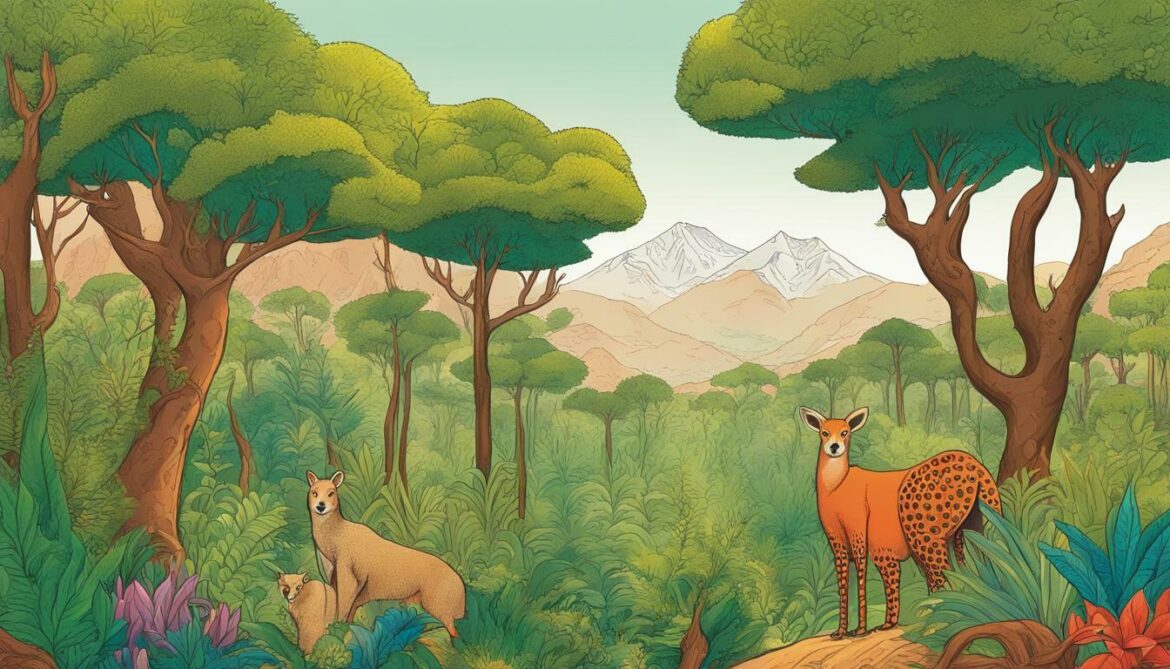
“We do not inherit the earth from our ancestors, we borrow it from our children.” – Native American Proverb
Conclusion
Algeria is home to a rich and diverse array of flora and fauna, with unique ecosystems spread across the country. However, this biodiversity is under threat from various factors such as habitat loss, climate change, poaching, and pollution.
It is vital that we continue to invest in conservation efforts and strategies to safeguard Algeria’s natural heritage. By promoting biodiversity education and awareness, we can foster a sense of responsibility towards conservation and ensure that future generations can appreciate and enjoy the country’s diverse flora and fauna.
Preserving biodiversity is not only essential for ecological reasons but also for the cultural, social, and economic benefits it provides. Therefore, let us all make a concerted effort to protect and preserve Algeria’s natural heritage for a sustainable future.
Algeria Biodiversity FAQ
Q: What is Algeria’s biodiversity?
A: Algeria’s biodiversity refers to the variety of animal and plant species found in the country. It encompasses the diverse ecosystems and habitats that support a wide range of flora and fauna.
Q: What are some unique animal and plant species found in Algeria?
A: Algeria is home to several unique animal and plant species. Some examples include the Barbary lion, Atlas cedar, Saharan cheetah, and Mediterranean monk seal.
Q: What ecosystems are present in Algeria?
A: Algeria has a range of ecosystems, including the Mediterranean coastline, the Atlas Mountains, the Sahara Desert, and the inland wetlands. Each ecosystem supports its own unique set of species.
Q: What efforts are being made to conserve Algeria’s biodiversity?
A: Conservation efforts in Algeria involve the government, NGOs, and local communities. These efforts include establishing protected areas, implementing sustainable practices, and raising awareness about the importance of biodiversity.
Q: What are the threats to Algeria’s biodiversity?
A: Algeria’s biodiversity faces threats such as habitat loss due to urbanisation and agriculture, climate change, poaching, and pollution. These factors can disrupt ecosystems and negatively impact animal and plant species.
Q: Why is it important to safeguard Algeria’s natural heritage?
A: Safeguarding Algeria’s natural heritage is crucial for preserving biodiversity, maintaining ecological balance, and protecting cultural, social, and economic values. It ensures future generations can continue to benefit from the richness of the country’s flora and fauna.
Q: How can biodiversity education and awareness be promoted in Algeria?
A: Promoting biodiversity education and awareness can be achieved through education institutions incorporating environmental topics into their curricula, media campaigns highlighting the importance of biodiversity, and community initiatives engaging people in conservation activities.
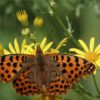
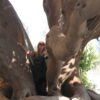
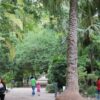



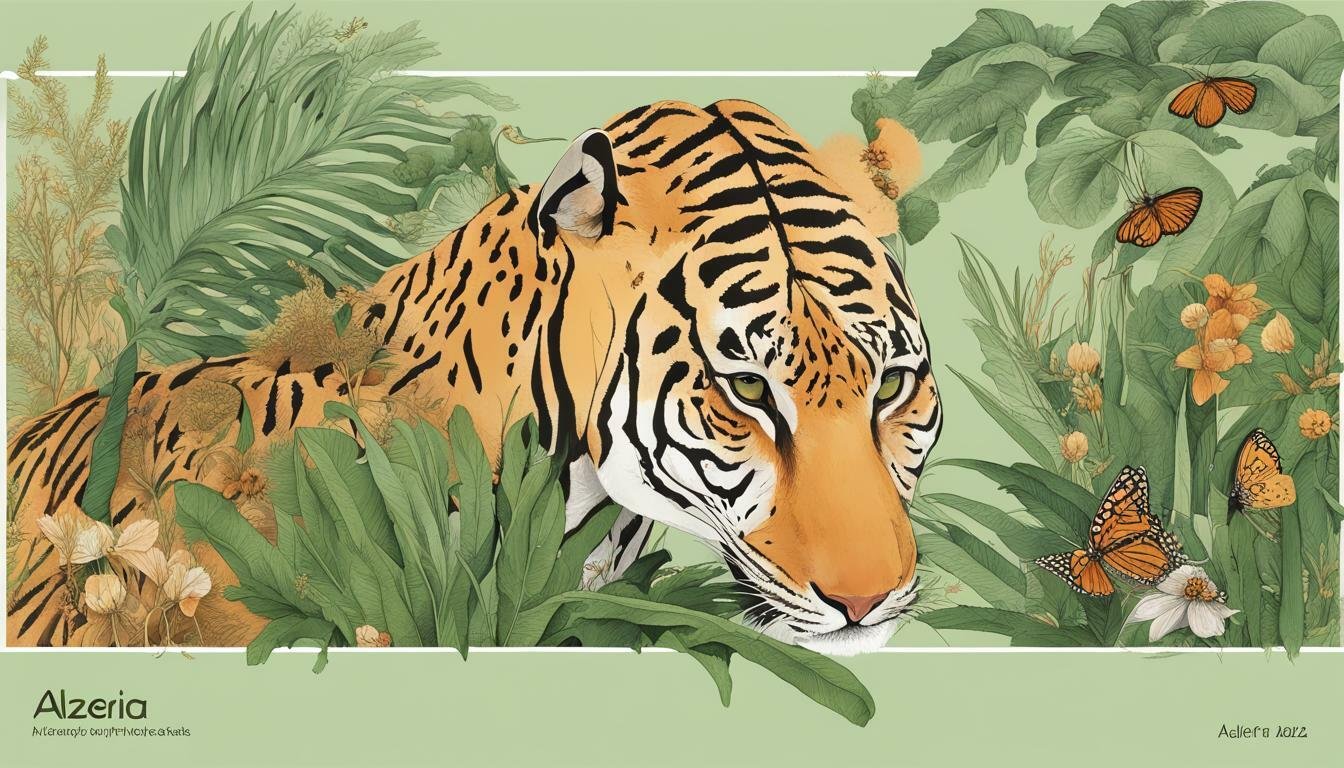









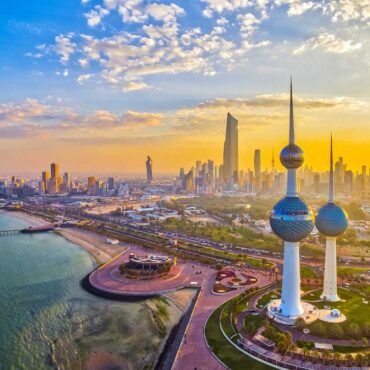









Post comments (0)